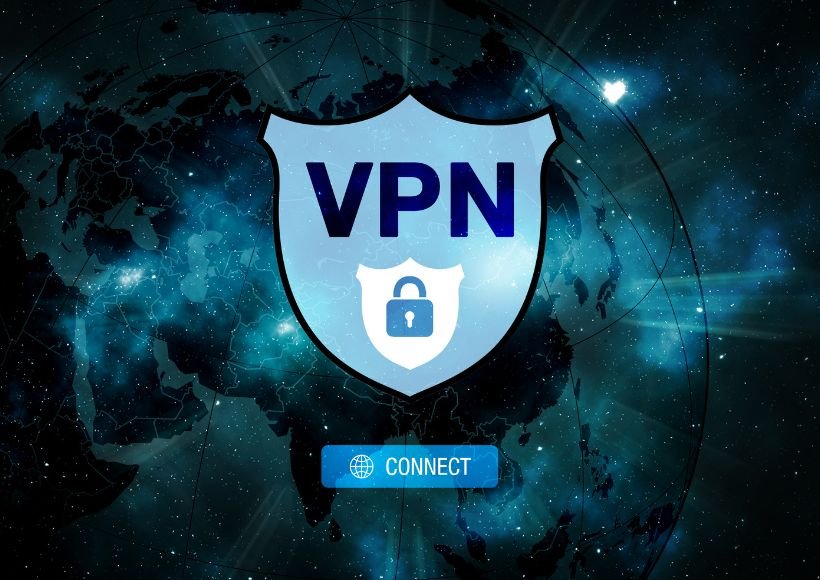What is a VPN Connection? These Are Its Uses, Advantages And Disadvantages.

Privacy is essential today. Many people don’t want others to see what they do on the internet. A VPN connection does this. But what is a VPN connection?
Table of Contents
What is a VPN Connection?
VPN means Virtual Private Network. It provides privacy and security for your internet use. When you connect to a VPN, your IP address is hidden. This means that you will not have your real location tracked by websites, and people will not see what you do. It also keeps your data safe from hackers, especially on public Wi-Fi.
A VPN connection is like a secret tunnel online. Your data travels through the tunnel safely and privately.
How to Set Up a VPN on a Computer
It is very easy to set up a VPN:
- First, choose your VPN provider; some can be free, others can be paid.
- Download the VPN app from the provider’s website or app store.
- Open the app and log in.
- Select a server (for example, US, UK, or India) you want to connect to.
- Then click on “Connect to VPN.”
- And you will now be connected securely.
Some systems may allow you to configure them manually. You can also review a couple of guides on how to manually set up a VPN on a computer as a reference.
VPN Connection Example
So you’re in India, and the only place you can access a website or a movie is in the US, so you can connect to a VPN and select a US server. Now it will look at the websites as if you are in the US. That is an example of a simple VPN connection.
Why Do People Use VPNs?
A VPN assists individuals in feeling protected and anonymous when they are using the internet. Here is how and why people use it:
1. To Keep Secrets Online
When you are using the internet, your internet service provider (ISP) sees every website you visit. A VPN masks that, keeping your online activity anonymous.
Example: If you are searching for medical information, with a VPN, no one else can see what you searched for.
2. To Stay Safe on Free Wi-Fi
If you use free Wi-Fi at coffee shops, friendly local hangouts, airports, or hotels, you put your data and your privacy at risk. You can hide your data from prying eyes with a VPN so your passwords, bank information, and communications are safe.
Example: You check your bank account at the airport. Without a VPN, someone could steal your info. With a VPN, your connection is locked and safe.
3. To Open Blocked Apps or Sites
Some websites or apps do not work in certain countries. A VPN is the best way to access blocked websites because it acts as if you are in a different country.
Example: If a video is not working in India, but does work in the US, connect your VPN to a US server, and now it works.
4. To Watch More Shows and Movies
Streaming apps like Netflix, YouTube, or Hotstar deliver various videos in each of their countries. Your VPN enables you to watch shows from elsewhere.
Example: Want to watch a US-only Netflix show? Use a VPN and select a US server, and it will unlock.
5. To Protect Yourself While Working From Home
Many home workers utilize VPNs to connect to their office systems safely. This protects your important files and work data.
Example: If you are working for a company and going to open a private office website, a VPN makes sure nobody can see that.
Advantages of VPN Connection
- Keeps your data private
- Hides your IP address and location
- Helps you open blocked websites and apps
- Let you work safely on remote networks.
- Protects you from hackers
Disadvantages of VPN Connection
- Slower internet speed: Because your data travels farther, it may slow down.
- Good VPNs cost money: Free ones may be less safe.
- Not all VPNs are secure: Some may track your activity.
- Legal issues in some countries: VPNs are not allowed everywhere. Check your country’s laws.
Finally
A VPN connection is beneficial. It protects your safety and expands your access. If your objective is to be private, connect using a VPN. If you intend to watch shows or use apps specific to a country, connect using a VPN online. It is not difficult to learn how to connect to a VPN on a computer, so keep in mind that once you have learned, it is just a few steps away.
Use it carefully, as these tools can aid you as much as they can harm you. Always use a VPN provider you can trust. Use a free service for small amounts of time only, and using a paid service will give you complete privacy and speed. Always check to make sure that using a VPN is not illegal in the country you are in.
Now that you know what a VPN connection is, try one, and it may change your internet experience.
